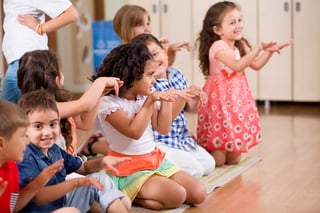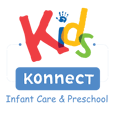How Dramatic Play Helps Improve Preschool Literacy
Drama, it is said, allows people to practice the emotions they will need during life’s challenges. No wonder, then, that children love dramatic play. At Kids Konnect we see valuable connections between role playing and literacy.
 Dramatic Play Strategies of the Best Preschools
Dramatic Play Strategies of the Best Preschools
In the National Association for the Education of Young Children (NAEYC) publication, The Essentials of Early Literacy Instruction, dramatic play gets a prominent role among the teaching strategies the best preschools should follow. At Kids Konnect we help kids consolidate and interpret their learning through role-playing. Almost all children tend to narrate their dramatic play, which allows them to explore oral language, sort out their feelings and understanding of situations, and advance their literacy skills.
Literacy and Drama
Dramatic play is so intrinsically tied to literacy that Scholastic Books devotes an entire book to the subject. Scholastic identifies four links between the two:
- Children experiment with literacy applications—In dramatic play, children will use menus, newspapers and magazines as props; they may play grocery store and include coupons, food labels, and receipt tapes as part of their scene
- Children recognize how different texts align with different tasks—A map goes with firefighter role play or tourists; informational pamphlets go with the pretend veterinary clinic; the diner needs menus and order books
- Children play with a wide range of texts—The best preschools will provide their actresses and actors with functional text (traffic signs, food labels, postcards) and other formats (grown-up bound books, magazines, picture books; the ponderously large dictionary is always a hit)
- Children retell familiar stories, gaining comprehension—The dramatic play of books read at Kids Konnect often demonstrate how carefully the children listened, and how creative they can be in their personal retellings
The Stage is Set
The experts at EarlyChildhood NEWS point out six skills that dramatic play improves in preschoolers:
- Role playing—Learning to think beyond oneself; learning to observe others
- Handling props—Increasing fine and gross motor skills
- Imagination—To enrich their imagined world, children imitate adult actions and language use
- Attention span—Sustaining a dramatic role, with its rich inner monologue, helps children increase their ability to focus on text
- Social skills—Many children narrate and exchange dialogue with other preschoolers
- Communication—Dramatic play promotes speaking and listening skills
Kids Konnect encourages dramatic play and literacy connections. What have you done to help your pint-sized actress or actor gain self-confidence and literacy skills? Let Kids Konnect know in the comments below!
